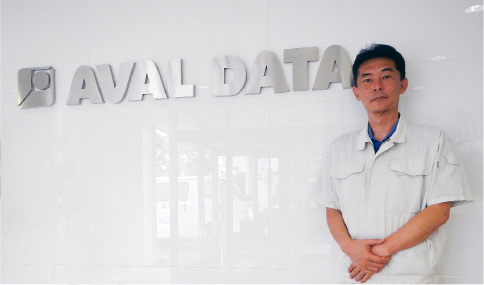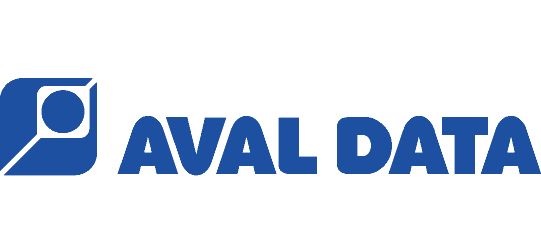Case Study - Aval Data

Brief information about the company:
Name: Aval Data
Number of Employees: 186 (As of March 31st, 2021)
Location: Tokyo
Founded in 1959 December
Industry: Semiconductor and electronics manufacturing

Towards eliminating legacy EDI system and streamlining the sequence of purchasing-related operations
Based on the know-how accumulated in the industrial field for more than 60 years since it was founded, Aval Data Co., Ltd. has been conducting the complete cycle of operations from planning to development, design, manufacturing, and sales, focusing on industrial equipment and semiconductor manufacturing equipment. Nowadays, they support and deliver value to their customers’ business through the high-density and high-performance design technology that fully uses FPGA and core technologies such as communication and network. We asked Mr. Nakao of the Production Management Department and Mr. Fujita of the Information Systems Group about the background of choosing the cloud-based EDI service “EXtelligence EDIFAS” (from now on, referred to as EDIFAS) and the tasks that were solved by using EDIFAS.
-Could you tell us why you decided to deploy EDIFAS?
The EDI system we’ve been using so far could only use the purchase order management (order / ATP) function. Most communication and transactions with our business partners who used EDI were done through human intervention. We considered a system upgrade to improve usability and expand the range of use, but even a tiny operation change incurred high upgrade costs and lacked flexibility. As a result, it was challenging to achieve business operations efficiency. In addition, since it was an on-premises-type system, being able to operate only on Windows 7 and Internet Explorer was also a significant problem. At the same time, production output and the number of orders from business partners increased, making it challenging to manage all the processes using the same system. Therefore, we decided to consider bringing in a new EDI system. We compared multiple systems offered by numerous companies. Ultimately, we decided to choose EDIFAS because of the comparatively low cost and, most importantly, system compatibility.
-What did you manage to achieve by deploying EDIFAS?
 Because we moved to the cloud, it has significantly simplified the operations management and drastically reduced costs. We also reduced man-hours by more than 10 hours by eliminating the tasks we had to perform by ourselves, such as stopping the server and creating and distributing manuals at the time of version upgrade. The problem, such as being unsure when a problem will occur, was also eliminated. “Invisible” insecurity and “visible” labor completely disappeared with the deployment of EDIFAS. In addition, with the deployment of a flexible EDI such as EDIFAS, we can now perform quotation management which was previously impossible because of constraints of the old system.
Because we moved to the cloud, it has significantly simplified the operations management and drastically reduced costs. We also reduced man-hours by more than 10 hours by eliminating the tasks we had to perform by ourselves, such as stopping the server and creating and distributing manuals at the time of version upgrade. The problem, such as being unsure when a problem will occur, was also eliminated. “Invisible” insecurity and “visible” labor completely disappeared with the deployment of EDIFAS. In addition, with the deployment of a flexible EDI such as EDIFAS, we can now perform quotation management which was previously impossible because of constraints of the old system.
-Did you feel any troubles or difficulties from implementation to operation?
Thanks to the constant support from EX members, we didn’t have particular troubles or difficulties. Although we had some challenges while changing the special slip that was an unavoidable part of the system change, we addressed all the challenges because of immediate response to questions about timing, procedures, and support. We appreciate how the EX team responded to inquiries in a very timely manner. Having all the necessary support, from identifying the source of the problem to providing a solution to the problem, when a new system is being deployed and receiving all the assistance required, makes us feel secure and relieved.
-Could you tell us about your future plans?
Purchasing operations involve not only processing sales/purchase orders but also a lot of work occurring before and after that. By using EDIFAS, we consider providing and receiving supply schedules and price changes in real-time. We’ve already made use of EDIFAS’s delivery, acceptance inspection, accounts payable, and payment functions, and we think that by further enabling quotation and schedule management, we can streamline the process of purchasing-related operations. We expect to achieve all this through EDIFAS and improve our business operations further.


